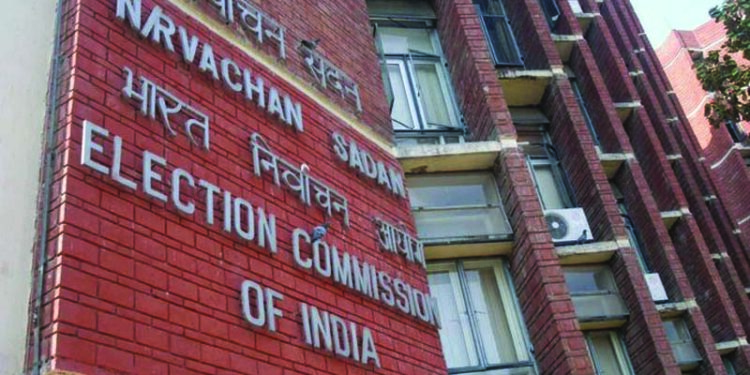NE NEWS SERVICE
NEW DELHI, MAR 24
Beating Covid fears, the Election Commission held assembly polls in Bihar, one of India’s most populous states, late last year and is now gearing up for a massive electoral exercise in four states and a union territory.
The nationwide lockdown that began on March 25 last year brought life to a sudden halt. With the infection continuing its spread even after it was lifted, there were apprehensions that holding elections would be fraught with risk.
However, the elections in Bihar were conducted safely over multiple phases in October and November last year with the poll panel putting strict Covid protocols in place. Armed with gloves, masks, face shields and sanitiser for all, the keenly watched Bihar election was the first full-fledged poll to be held in the pandemic with four crore of the more than seven crore voters exercising their franchise.
“We were able to conduct a COVID-safe election with a voter turnout of 57.34 per cent, which was higher than the 56.8 per cent turnout recorded during the previous election in 2015,” Chief Election Commissioner Sunil Arora said recently.
To ensure distancing norms, the Election Commission restricted the number of voters per polling station to 1,000 from 1,500. This led to an increase in the number of polling stations.
Other than Bihar, the EC also conducted elections across several states for Rajya Sabha seats, and by-elections for nearly 60 legislative assembly constituencies.
Now, campaigning is underway for assembly polls in West Bengal, Assam, Tamil Nadu, Karala and Puducherry.
The process begins later this month. An estimated 18.68 crore voters will be eligible to cast their votes at 2.7 lakh polling stations for 824 assembly seats across the four states and one union territory.
Once again, to ensure safety of voters, polling staff and security personnel, the Election Commission has procured lakhs of face shields, face masks, single use rubber gloves for polling and security personnel and ”one hand” single use polythene gloves for voters to press the EVM button and sign the register at the polling stations.
While Tamil Nadu, Kerala and Puducherry will go for polls in a single phase, Assam will conduct elections in three phases and West Bengal in eight.
In the 2016 polls, there were 77,000 polling stations in West Bengal, and 11,000 polling stations went to poll per phase. Due to distancing norms, the number of polling stations has gone up to 1.1 lakh. On an average, over 12,000 poling stations would go for polls in each of the eight phases.
Some political parties had earlier urged the Election Commission to not hold elections amid the pandemic. In August last year, the poll panel had come out with broad guidelines to hold polls amid the coronavirus pandemic.
When the campaigning was in full swing, it came out with an advisory for parties noting that Covid norms and health protocols were not being followed.
According to data made available by the Election Commission here and the office of the Chief Electoral Officer of Bihar, 156 cases were registered against “organisers” of rallies and meetings of various leaders and candidates for violating COVID-19 norms. Cases were registered against organisers as they had sought permission to hold rallies or meetings in which following health guidelines was mandatory, explained an official. Ahead of the three-phase elections in Bihar, the poll panel had made it clear that violation of COVID-19 guidelines during election period would be deemed a violation of Section 144 of the CrPC. Nearly 160 tonnes of biomedical waste in the form of gloves, face masks and empty sanitiser bottles used by polling personnel and voters was generated during the Bihar polls.
Authorities also relied on an inexpensive but effective technology used to track EVMs to ensure that the waste reached public health centres for its onward journey to the incinerator.









